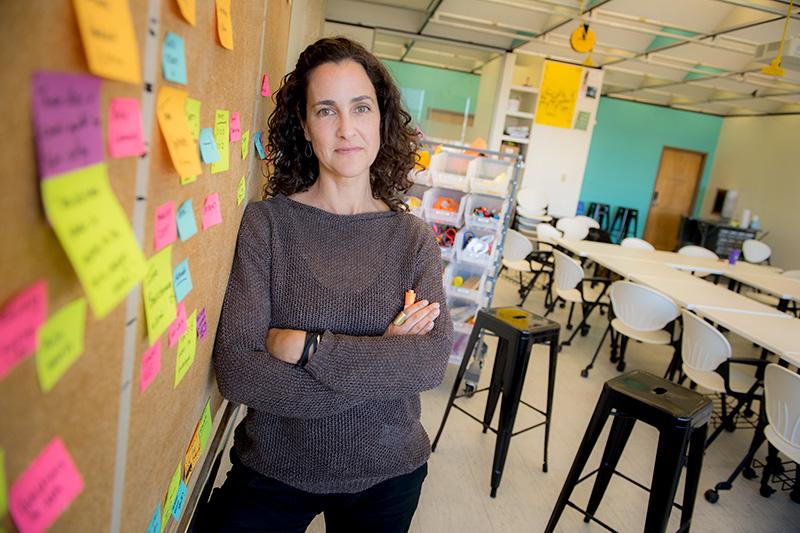Students address sexual misconduct on campus through Taylor Center course
When the results of the climate survey on sexual misconduct were released at a town hall meeting on the uptown campus in January 2018, hundreds of students attended the event, with many speaking up about their concerns. Now, a course offered by the Phyllis M. Taylor Center for Social Innovation and Design Thinking is fostering student collaboration in order to address the issue of sexual assault and work toward changing the campus culture.
Approximately 50 students are providing interdisciplinary input in the one-credit seminar called Project IX: Student Design to End Sexual Assault.
Launched in conjunction with the Wave of Change initiative, which facilitates educational programming on sexual misconduct, the course is taught by Allison Schiller, design thinking project manager for the Taylor Center.
As Schiller watched the university’s efforts to analyze and prepare for the survey results, she hypothesized that a student-led approach using the tools of design thinking — a human-centered approach that puts the users at the center of the challenge — could be the key to “creating a culture of change” at Tulane.
“I proposed to put together a team that would use student-centered qualitative design research to define smaller challenge areas. Through creative thinking and teamwork, students could collaborate to come up with possible solutions,” said Schiller.
Schiller worked with School of Public Health and Tropical Medicine graduate Maggie Hermann, a project coordinator for Project IX, and Katie Mathews, a co-design lead for Project IX, to interview over 40 students and staff members during the fall 2017 semester. The trio then identified “challenge areas” that teams of students could analyze and engage in designing solutions together during the spring semester.
Working in four teams, participating students now hold weekly discussions and workshops focusing on the challenge areas, which include education, community, justice and dialogue.
“Each of the four teams will begin to design multiple solutions to each of the challenge areas based on their continued student-centered research, creative brainstorming and collaborative work,” said Schiller. “They will engage with as many members of the Tulane community as possible to incorporate the needs of all student groups.”
“The students are now doing their own field research to better understand the needs of the campus community,” continued Schiller. “Using this information, they have begun to form questions informing how they will move forward in addressing these needs: How might we create ongoing conversations about consent? How might we build skills for healthy relationships? How might we make reporting more accessible? How might we create more spaces for survivors to feel heard? How might we encourage campus communities to promote a culture of sex positivity, transparency, equity, support and compassion in order to create lasting change?”
Schiller said that the Project IX seminar will end in May with each team having designed three to four plans of action.
“We’re hoping to create a public event where the teams will present their design solutions to the administration and student body,” she said.

